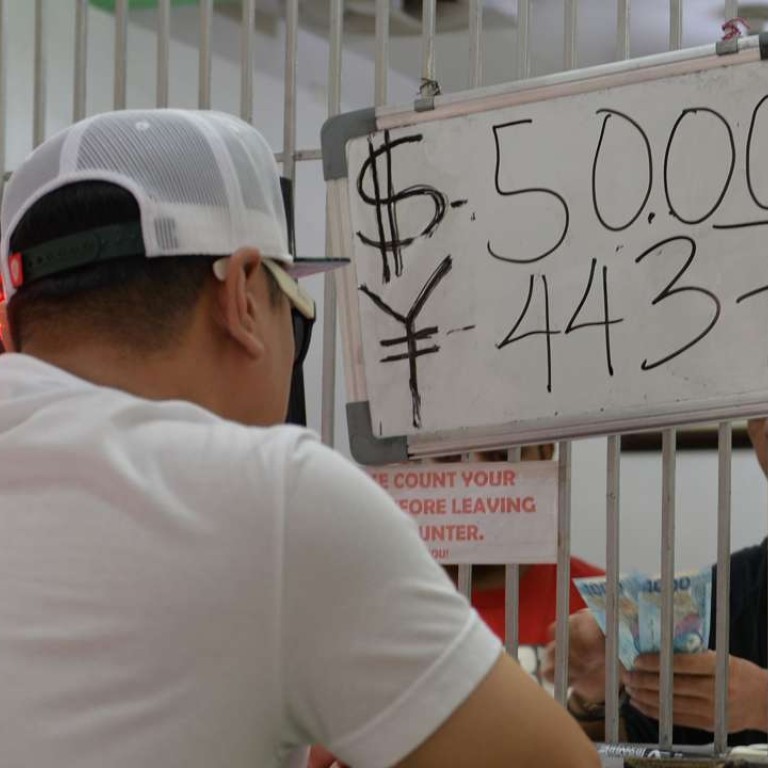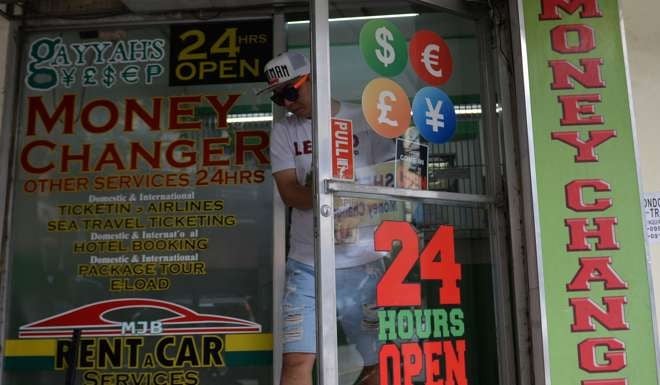
Philippines near ground zero in emerging market rout as peso falls to 2008 crisis levels
Asia’s emerging markets have faced outflows since Donald Trump won the US presidential election earlier this month. The Philippines is ground zero for the rout as a resurgent US dollar and Manila’s still-expensive stock market have made it even more vulnerable, with the peso plunging to an eight-year low.
The currency of the Southeast Asian nation reached 50 to the dollar for the first time this decade on Thursday and headed for its biggest annual loss since 2013. While equities are poised for their worst month since August 2013, valuations are still the priciest in Asia.
A Bloomberg gauge of the dollar is heading for the strongest close since at least 2005 amid speculation the president-elect’s policies will push the Federal Reserve to undertake a faster pace of rate increases.
“Emerging markets globally are experiencing fund withdrawals, but what makes the Philippines different, or vulnerable, was its valuation,” said Smith Chua, chief investment officer at Bank of the Philippine Islands, the nation’s second-biggest money manager with the equivalent of $12 billion in assets under management.
“The foreign-exchange movement has also been a significant factor for overseas investors. As the year is heading to a close, some of them want to lock in their gains before the peso weakens further.”

The last time the Philippine peso neared 50 to the dollar in 2008, the global financial system was melting down and the central bank raised interest rates to defend it.
Bangko Sentral ng Pilipinas is probably watching the market as the peso didn’t go beyond the 50 level, according to Jonathan Ravelas, chief market strategist at BDO Unibank Inc., the nation’s biggest bank by market value.
Other currencies in the region have not been spared, with Malaysia’s ringgit approaching its weakest level since 1998 when the Asian financial crisis occurred. The Indian rupee was also trading near a record low reached in August 2013.
A look at the flow of exchange-traded funds show that in the past month the US had the biggest net inflow at US$55 billion, data compiled by Bloomberg show. By contrast, developing nations, led by China and including the Philippines, saw outflows.
The Philippine peso has weakened almost 6 per cent in 2016. Overseas investors offloaded a net $327 million from the stock market in November, set for a fourth month of sell-offs since President Rodrigo Duterte took office at the end of June.
Philippine stocks are trading at 16.29 times 12-month estimated earnings, higher than the 11.9 times for the MSCI Emerging Markets Index of shares. The nation’s dollar bonds, which were up as much as 12 per cent this year in July, have pared those gains to about 4 per cent.

Philippine equities valuation peaked at 19.6 times earnings in July as stocks rallied amid speculation Duterte’s policies would accelerate one of the region’s fastest-growing economies. Since then, concerns over his deadly drug war -- which has killed thousands -- and his anti-U.S. rhetoric have led investors to pull back.
Some foreign-exchange strategists estimated earlier this month the currency would reach the 50 level only by next year as a seasonal increase in money remitted by overseas Filipinos for Christmas spending will curb a decline in the currency.
“A weaker peso just gives more dollar value to potential investors in emerging markets,” said Manila-based Ravelas at BDO said. “In terms of our valuation in the stock market, we’re expensive.”

